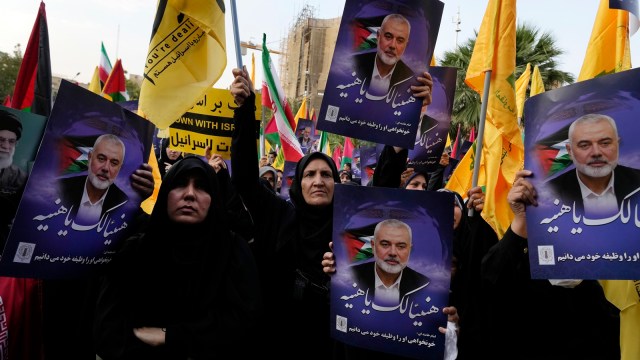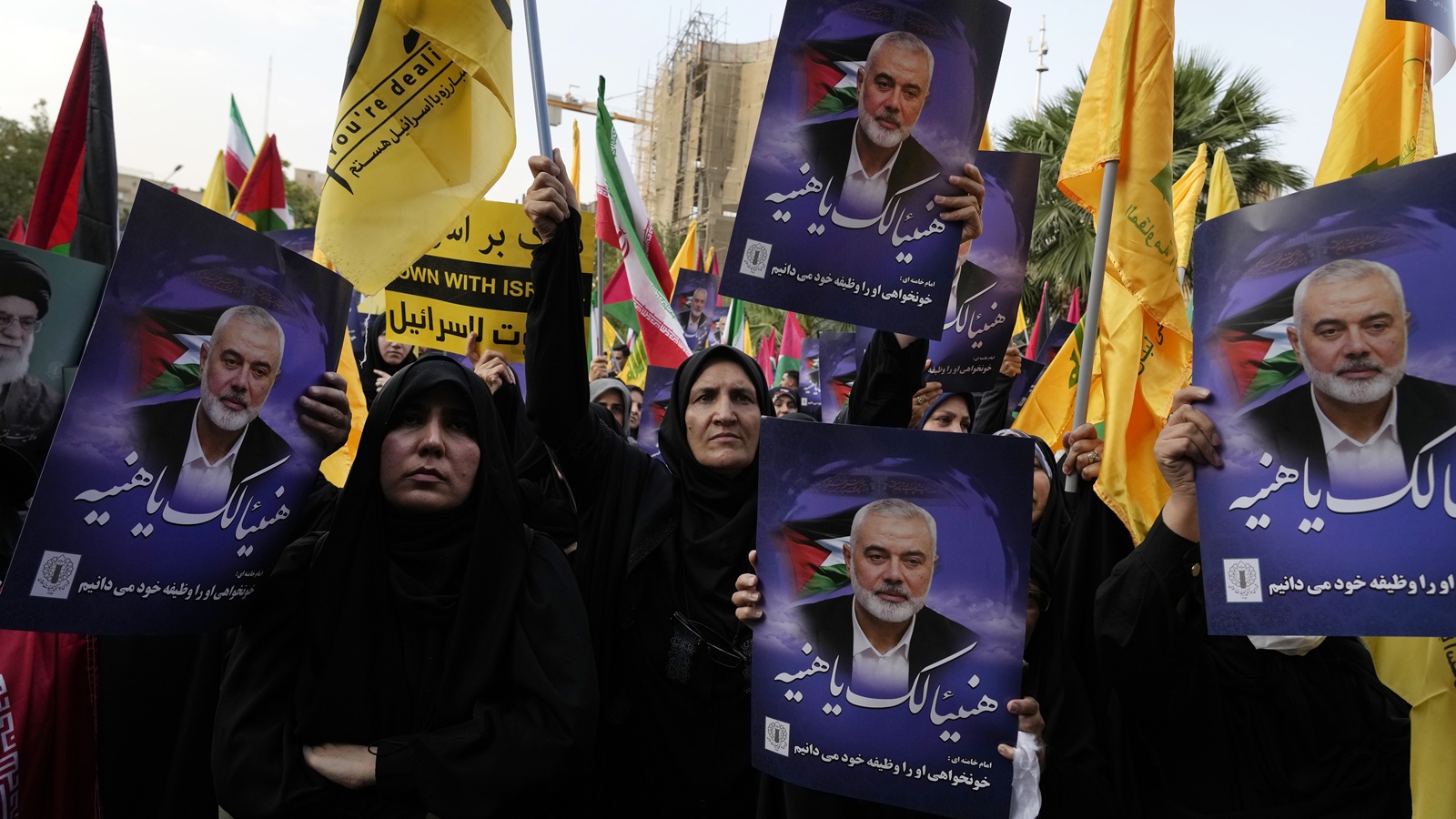
Amid frantic efforts for a ceasefire in Gaza, back-to-back assassinations on July 30-31 of top Hezbollah leader Fuad Shukr in Beirut and Hamas’s Political Bureau Chief Ismail Haniyeh in Tehran have again brought the Middle East on edge. On July 31, Iran’s Revolutionary Guard Corps (IRGC) announced that Haniyeh was killed in an “unspecified” attack on his residence. A day earlier, he had attended the inauguration of the new Iranian president. Blaming Israel for the killing, Iran has vowed “punishment”. Since November, the US and its allies have been conducting regular real-time as well as preemptive attacks on the sea-borne and land resources of the Houthis to ensure freedom of navigation for commercial vessels through the Red Sea. The Middle East has entered another dangerous phase, further threatening to shatter the region, global trade and security.
Prima facie, the killings seem to have been triggered by two recent attacks on Israeli soil. On July 27, 12 children were killed in Golan Heights, which Israel blamed on Hezbollah and on July 19, a drone landed in Tel Aviv, which was claimed by Houthis. In Israel’s view, Iran remains the sole pillar of support for Hamas, Hezbollah, the Houthis and militias based in Syria and Iraq.
The current assassinations, however, appear guided more by an “expectation” to change the course of events for Israel, which has been best described by a former spokesperson for Israeli forces as an attempt to “break the enemy’s will to fight before negotiation”. Ironically, the killings are likely to harden the resolve of Iran and its allies: Since October 7, Israel has been sucked deeper into the growing regional conflict.
Ten months of the war in Gaza, aimed at getting back hostages from Hamas and weakening the group to eventually denying it any role in a post-war administration has, so far, not produced satisfactory results. Since the October attacks, Israeli forces have also been caught up in a conflict with Hezbollah fighters on the northern borders with Lebanon. Thousands of citizens have been displaced, under regular aerial attacks by Hezbollah. Initially, Israeli forces had said that the end of the war in Gaza did not mean the end of the war against Hezbollah. This position seems to have changed in recent weeks. The back-to-back killings may be a way to push the scope of talks on Gaza to include northern borders.
Earlier, in April, to avenge an Israeli attack on an Iranian diplomatic facility in Damascus in which Iranian generals were killed, Iran mounted a direct attack on Israel by launching 300-plus projectiles. The US, participating in Israel’s active defence for the first time, refused to be part of any offensive against Iran. Thus, employing a “social media war” tactic and claiming “hits” on places close to Iranian nuclear facilities, Israel diffused the situation with a notion of “revenge”. But four Iranian ballistic missiles landing on the Nevatim airbase clearly demonstrated Iran’s ability to strike deep into Israel. The deterrence Israel had claimed against Iran for years was diminished. The place and timing of Haniyeh’s assassination may be an attempt to restore deterrence against any future attacks by Iran.
Echoing opposition to full-scale military operations in Rafah in May, US Secretary of State Antony Blinken had said that parts of Gaza cleared of Hamas were seeing re-emergence of their fighters and the same thing was likely to happen in Rafah. He warned that the military approach could lead Israel to battle an “enduring” insurgency in Gaza. Since then, Israeli forces have had to again go into previously cleared northern and central Gaza. In early July, pro-Republican US media too had assessed that thousands of Hamas militants were still active across Gaza.
Over the last 10 months, constant streaming of images of civilian casualties, starvation, displacement of millions of people, bombings of hospitals, humanitarian aid workers and UN staff have led to the political isolation of Israel. This is despite the fact that on October 7, the world viewed it as a victim of a terrible terrorist attack. Firmly believing that there was no military solution to the root of the conflict, the global community, especially Saudi-led Sunni Arab states, have been openly calling for a “two-state solution within 1967 borders with East Jerusalem as its (Palestine’s) capital”. The big powers, including the US, Russia and China are advocating ending the war and walking the path towards the two-state solution so that both Palestinians and Israelis can live peacefully.
Israel has, for years, cited disunity among Palestinian factions as a major obstacle to talks. From July 21-23, China facilitated reconciliation talks between senior representatives of 14 Palestinian factions, including Hamas and Fatah, which governs the West Bank. The Beijing Declaration signed by all the factions agreed on forming a unity government for the administration of Gaza after the war. The inclusion of Hamas is unacceptable to Israel as of now.
Hamas is unlikely to be impacted seriously or lose its will to fight. It is naïve to believe that Iran, with a strong group of Shia and Sunni allies across the region, would lose its will to fight either. The recent trip of Israeli PM Netanyahu to the US indicates that America is unlikely to be drawn into any direct war with Iran — whatever the outcome of the presidential election. As on earlier occasions, Iran will likely respond to the killing on its soil to reset the deterrence with Israel, but in a calculated manner — without losing their advantage. Iran and its allies have already gained over Israel in the regional war.
The writer is a security analyst and former Director General of Police



